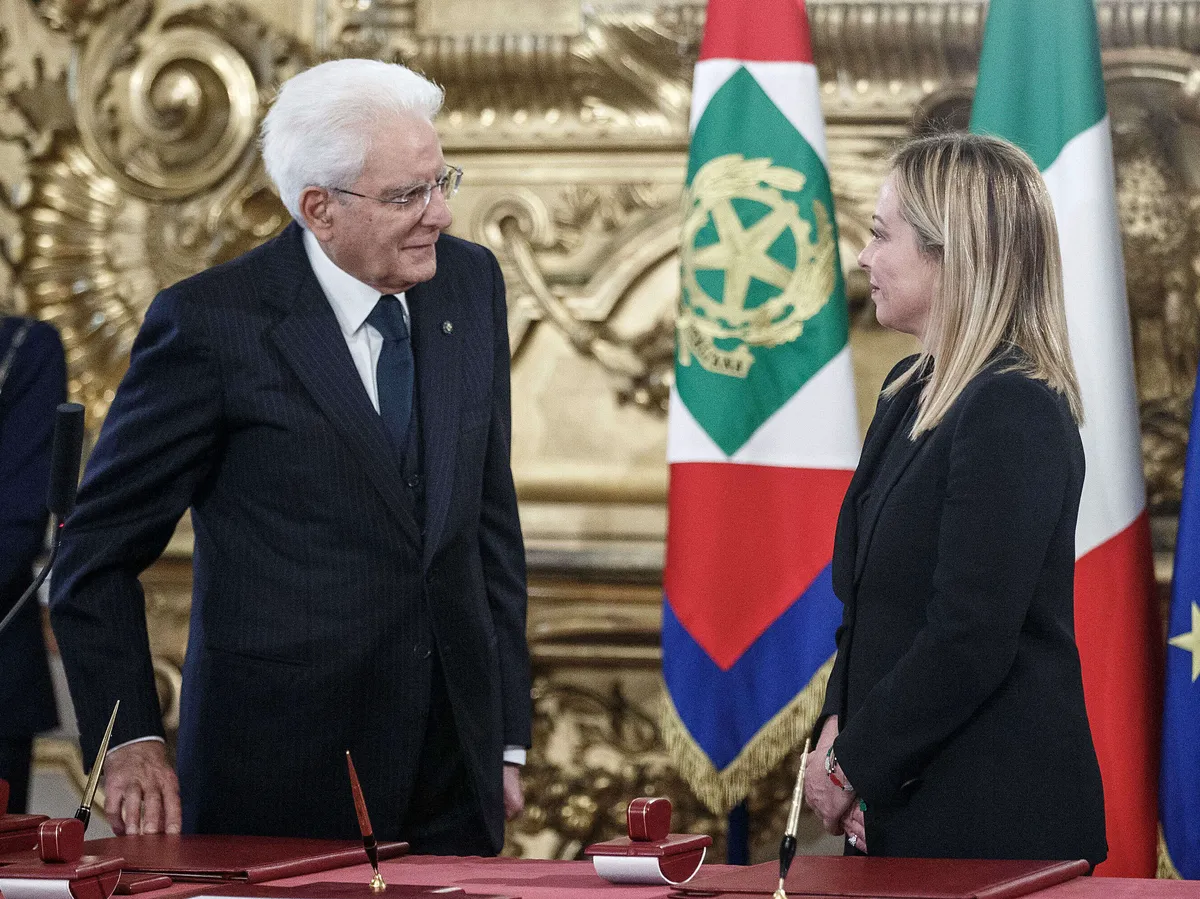In Finland, legal scholars and political scientists are engaging in a heated debate over the powers of the president. There are calls for a transfer of foreign and security policy powers from the president to the government led by the prime minister. This debate is not unique to Finland; it is also happening in Italy, where legal scholars have been warning about the actions of the Meloni government.
The president of Italy holds significant authority, including the power to dissolve parliament and government at any time. While current President Sergio Mattarella has used these powers sparingly, concerns have been raised about potential changes proposed by far-right Prime Minister Giorgia Meloni. Meloni has proposed a constitutional amendment that would drastically reduce the president’s powers in favor of giving more power to the prime minister, who would be elected through popular vote.
This move has sparked fears among legal scholars and political scientists that such changes could limit the president’s ability to provide stability and market confidence in times of crisis. Critics argue that Meloni’s ties to neo-fascist groups in Italy raise further concerns about where Italy may be heading. Some experts have even compared Italy’s current trajectory to Hungary and Poland, countries where democracy has been eroded by right-wing populism.
Overall, there is growing concern among legal scholars and political observers about the implications of the Meloni government’s actions and their potential impact on Italy’s democratic institutions. The future of Italy’s democracy remains uncertain as debates over constitutional changes continue to unfold.



